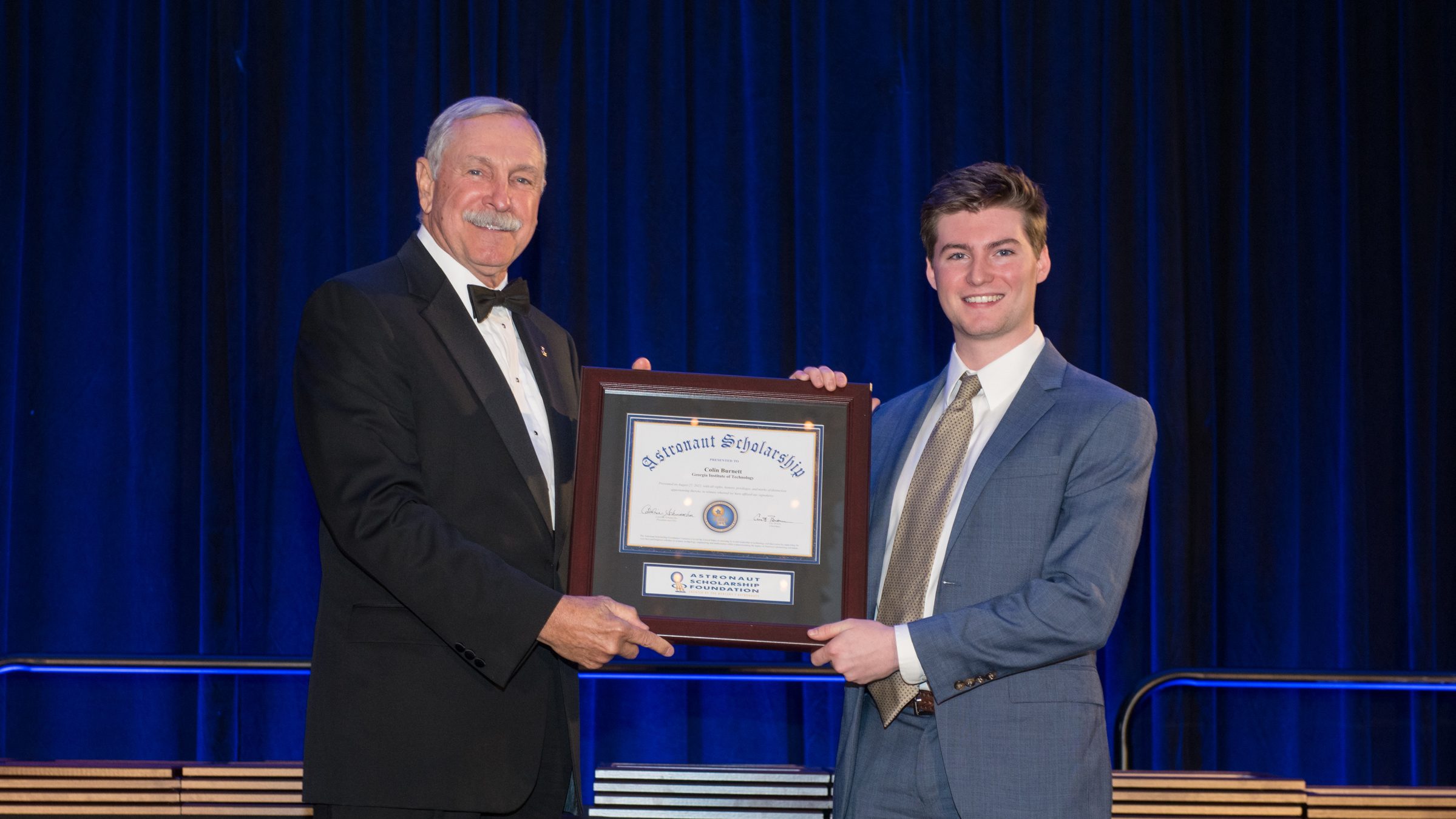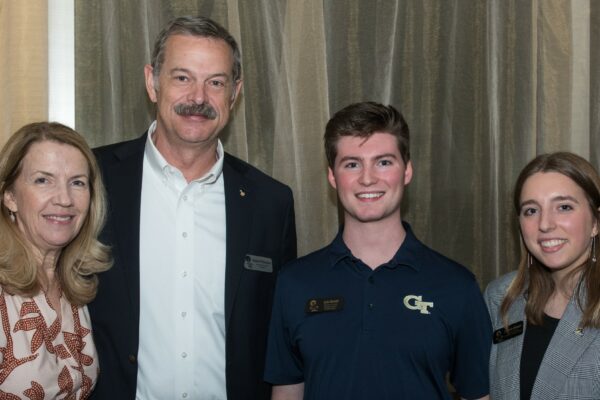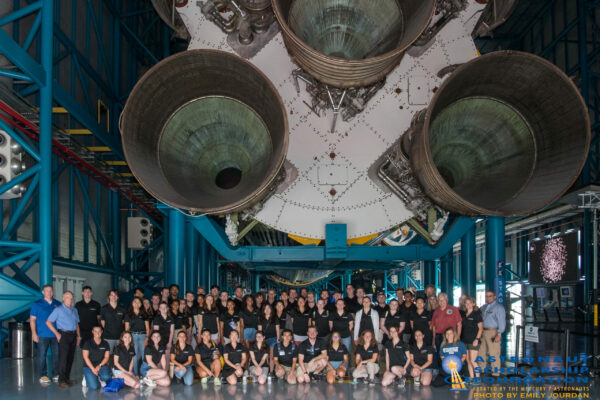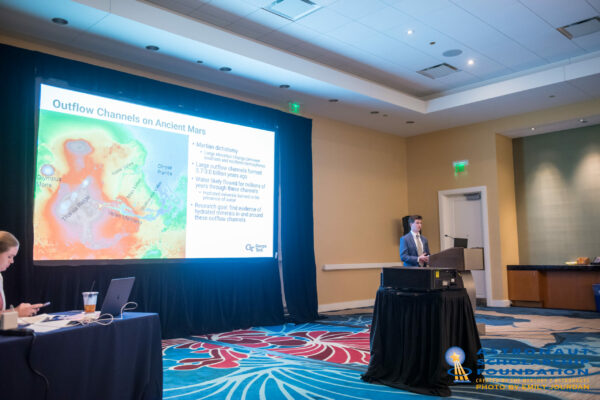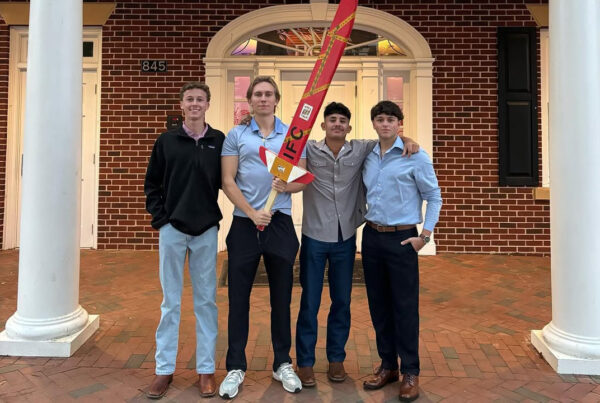In June 2022, Colin Burnett, Georgia Tech ’23, was one of 68 students from across the U.S. selected to the prestigious 2022 Astronaut Scholar Class by the Astronaut Scholarship Foundation (ASF). The Marietta, Georgia native received a $15,000 scholarship award to continue his research and education, a trip to the ASF Innovator’s Week and Gala, and lifelong access to an astronaut network.
Colin has been heavily involved in two research areas at Georgia Tech, one on aerobraking—the process of using friction from planetary atmosphere to slow down a spacecraft and lower its altitude—and the other on Compact Reconnaissance Imaging Spectrometer for Mars (CRISM) image analysis to determine the minerals in certain locations on Mars.
In addition to presenting his CRISM research at the Innovator’s Week in August, Colin and the rest of the Astronaut Scholars class toured the Kennedy Space Center with Apollo 17’s Dr. Harrison Schmitt and Charlie Precourt as tour guides. As he continues his research and education, Colin was matched with Dr. Tom Jones—who has flown on four different space shuttles—as a mentor.
“It was an incredible experience since it has been my goal for as long as I can remember to be an astronaut,” he said.
Since then, Colin has continued his CRISM research and started a new project on salt- and regolith-derived concrete for In-Situ Resource Utilization—the process of generating products with local materials—on the surface of Mars. He plans on presenting the “Mars concrete” project at the Lunar and Planetary Institute’s Brines Across the Solar System Conference in Reno, Nevada, and later publish the findings.
Colin graduates in May 2023 and will be interning at Denver’s ispace inc. for the summer before beginning a master’s in aerospace engineering at Georgia Tech in the fall. During which, he will be working in Georgia Tech’s Aerospace Systems Design Lab (ASDL).
“I love doing research, and I’m just excited to see where this path will take me.”
While many Beta brothers have pursued careers in the aerospace industry, three have gone on to become astronauts. The first to do so was Paul Weitz, Penn State ’54, who piloted the first crewed Skylab mission in 1973 and flew the maiden voyage of the Challenger 10 years later. Joe Allen, DePauw ’59, was selected as a scientist-astronaut for space shuttle missions in 1982 and 1984, and later received the Fraternity’s second Oxford Cup. Also an Oxford Cup honoree, Bill Nelson, Florida ’64/Yale ’65, currently serves as the 14th administrator of NASA after a 30-year congressional career representing the state of Florida, during which he chaired the House Space Subcommittee and became the second sitting congressman to travel into space, aboard the Columbia’s seventh mission in 1986. Kenneth Cameron, MIT ’71, recorded the most time in space (23 days, 10 hours, 11 minutes) after flying on three missions, his first in 1991.
—
The Astronaut Scholarship Foundation was founded in 1986 by Mercury 7 astronauts Scott Carpenter (Delta Tau Delta), Gordon Cooper, John Glenn, Walter Schirra (Sigma Pi), Alan Shepard and Deke Slayton, and several others close to the project. The Foundation was started to ensure that the United States would continue to lead the world in science and technology by supporting students in those fields.

